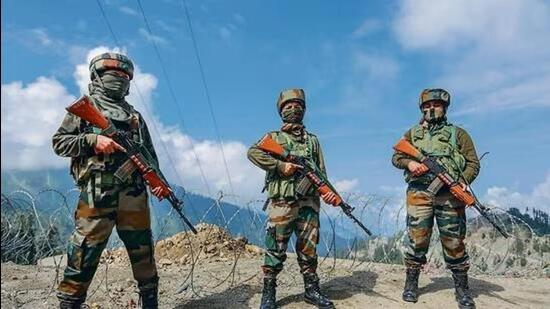Indian Army: Ceasefire with Pakistan Has No Expiry Date
- MGMMTeam

- May 18, 2025
- 2 min read
The Indian Army stated on Sunday that the agreement between India and Pakistan to halt military hostilities is indefinite and does not have a fixed expiration date, dismissing Islamabad’s claims that the ceasefire was recently extended until May 18.
“As far as continuation of break in hostilities is concerned, as decided in DGMOs (directors general of military operations) interaction of May 12, there is no expiry date to it,” the army stated briefly that India has made it clear the continuation of the May 10 ceasefire depends entirely on Pakistan’s conduct.

The four-day military standoff concluded, easing concerns of an all-out armed conflict. The Army clarified that no Director General of Military Operations (DGMO)-level talks are scheduled for Sunday.
On May 15, the Indian Army announced plans to implement “confidence-building measures” (CBMs) along the Pakistan border to lower the state of alert, shortly after Pakistan’s Foreign Minister Ishaq Dar confirmed that the May 10 ceasefire had been extended until May 18.
Operation Sindoor, launched in the early hours of May 7, was India’s response to the terrorist attack in Pahalgam that claimed 26 lives.
The ceasefire agreement between India and Pakistan was declared on the evening of May 10 following a hotline conversation between Indian DGMO Lt. Gen. Rajiv Ghai and his Pakistani counterpart Maj. Gen. Kashif Abdullah, during which both sides agreed to halt all military actions—on land, at sea, and in the air.
The DGMOs spoke again on May 12 to reinforce the fragile truce.
The ongoing CBM discussions emphasized upholding the May 10 pledge that neither side would fire a single shot or initiate aggression, and also considered scaling down troop presence in forward areas.
On May 16, Defence Minister Rajnath Singh cautioned Islamabad, stating that it remained “under observation” following the agreement reached on May 10. “If the behaviour improves, it is fine; but if there is any disturbance, harshest punishment will be given,” he stated this while at the Bhuj airbase. “Our actions were just a trailer, we will show the full picture, if need be. Attacking and eliminating terrorism is the new normal of new India,” he said.
In the early hours of May 7, Indian forces launched Operation Sindoor, targeting nine terrorist camps across Pakistan and Pakistan-occupied Kashmir (PoK) with airstrikes. The pre-dawn offensive reportedly killed over 100 militants and triggered a wave of retaliatory strikes along the western border, involving fighter jets, missiles, drones, and intense exchanges of artillery and rocket fire.
During one such counterstrike on the night of May 9–10, the Indian Air Force hit 13 Pakistani airbases and military facilities.
On May 15, the Indian Army announced plans to implement confidence-building measures (CBMs) along the border with Pakistan to lower the level of alert, shortly after Pakistani Foreign Minister Ishaq Dar confirmed an extension of the ceasefire between the two nations until May 18.
Since May 10, neither side has fired a shot—a key term of the truce—although Pakistan has reportedly attempted to breach the ceasefire, with drones sighted over Indian cities on the nights of May 10 and May 12.
(Sources: Hindustan Times, Mint)




Comments